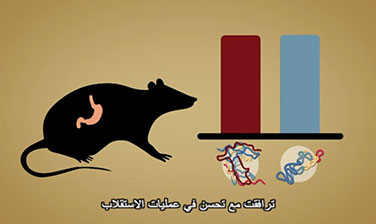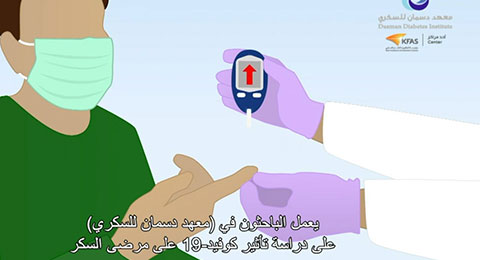Due to the high rates of obesity in the Gulf Region and Kuwait, we are witnessing an alarming increase of type 2 diabetes. Obesity or fat accumulation causes metabolic dysfunction and oxidative stress. Unhealthy eating habits result in excess food consumption that disrupts the metabolism causing metabolic dysfunction. Normally, the body maintains a balance between free radicals and antioxidants. Free radicals are toxic byproducts that damage living cells and tissue while antioxidants are molecules that protect living cells and tissue from damage.
Oxidative stress is an imbalance of free radicals and antioxidants. Oxidative stress can lead to insulin resistance, abnormal amounts of fat in the blood (dyslipidemia), impaired glucose tolerance due to β-cell dysfunction and ultimately type 2 diabetes. Our research, at the Biochemistry and Molecular Biology department, is focused on enhancing our basic understanding of metabolic signaling pathways involved in dyslipidemia, oxidative stress and insulin resistance.

More about our research achievements!
Our Research
Our department has been actively applying a multi-systems approach, utilizing cutting edge proteomics and transcriptomics techniques to identify clinically relevant biomarkers and establish their role in diabetes and its complications. Data generated from the different assays are merged together to generate models, allowing us to integrate our findings with known pathways and uncover new players that modulate obesity and diabetes. The detection of novel biomarkers is important for effective therapeutic development.
Our Objectives
- Understand the role of SGLT2 inhibitor and GLP1 agonist on ANGPTL related proteins as well as other related diabetic biomarkers.
- Establish the role of key heat shock proteins, mainly DNAJB3, DNAJC27 and HSP60 proteins in obesity and T2D and understand their role in insulin signaling pathways.
- Understand the interplay between previously identified biomarkers and complications of diabetes, such as diabetic nephropathy, sleep apnea and cardiovascular diseases.
- Establish the link between existing biomarkers and their regulation by microRNAs (miRNAs). Identify the targets genes of miRNAs that are affected by obesity and diabetes and their signaling networks.
- Deciphering the role of Urocortin 3, a novel insulin secretion regulator in diabetes
- Understanding the effects of various lifestyle interventions (physical exercise, diet, metabolic surgery) on dyslipidemia, oxidative stress and insulin resistance.







